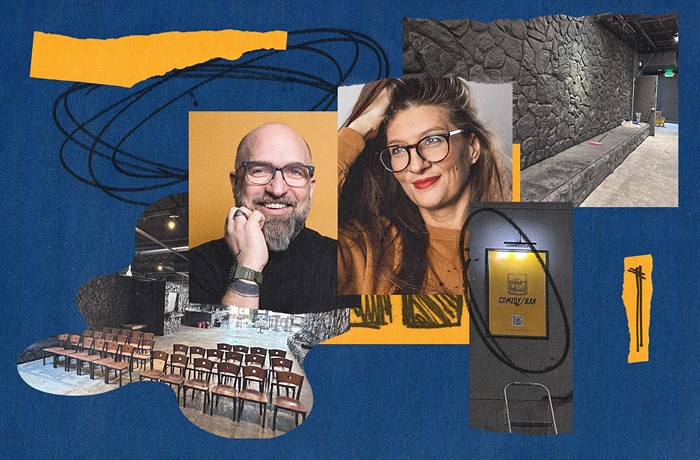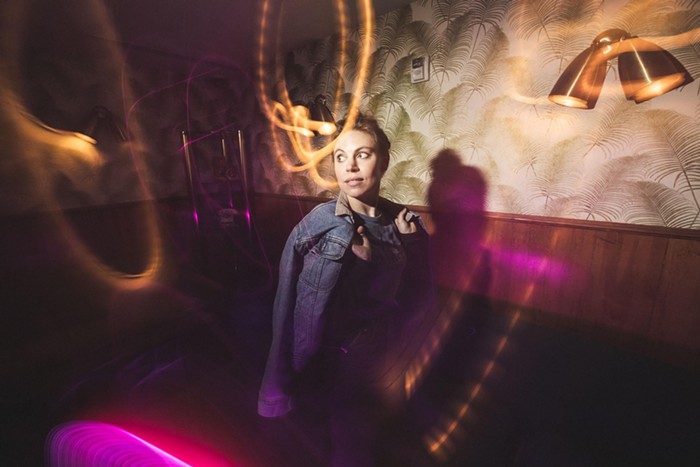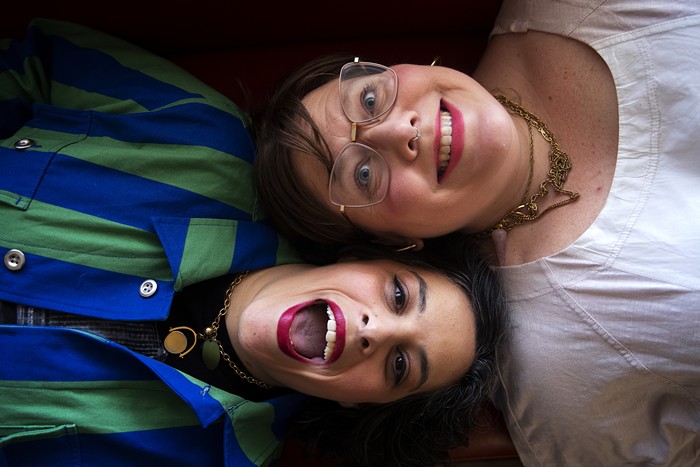![Im done making white people the scapegoat of all of societys problems. Since Ive lived [in NYC], my jokes have been about more personal things, like growing up with immigrant parents or fellatio. Im done making white people the scapegoat of all of societys problems. Since Ive lived [in NYC], my jokes have been about more personal things, like growing up with immigrant parents or fellatio.](https://media2.fdncms.com/stranger/imager/u/large/38003631/1547583374-img_1095.jpg)
Over the last five years, Wilfred Padua earned a rep as one of Seattle's funniest comics. Just as I was about to propose an A&P feature on the Filipino middle-school teacher—whose jokes about race, sex, Asian stereotypes, student interactions, and shitting one's pants rank among the most memorable of the last half decade—I found out he'd moved to New York City. Finally shaking off my feelings of dismay and betrayal, I decided to interview Padua on the occasion of him returning to perform at Laughs Comedy Club on Thursday, January 17. In addition to his frequent stand-up gigs, Padua co-hosts a podcast with Seattle comedy alumnus Andy Haynes called Miss Me With That. Make a note to check it and him out.
The Stranger: First, the most obvious question: Why did you leave Seattle and move to that comedy ghost town, New York? You mentioned in an e-mail that you never want to move back to Seattle. Is it Bezos?
Padua: There's no escaping Bezos. I mean, he's coming for New York, like a Japanese monster movie. But I left Seattle to see where I stand in the world of comedy, and because I want to continue being a part of how comedy at large evolves and changes. Seattle is too tucked away and removed to really be at the forefront of how this art form is evolving. So, I hope to never go back, because I want to be a part of this.
Is it too soon to realize if the move has paid off? Has the transition gone smoothly?
I don't know if it's paid off, but it has definitely been worth the struggle of uprooting myself. I've only been here four months and I've already been given better opportunities than I ever saw in my six years in Seattle. Now, none of those opportunities have turned into anything of real substance, but I do think that living here for an extended stay is going to open up a lot of doors for me. Has it gone smooth? Not really. But I didn't move to New York to be comfortable. This city is rough and being uncomfortable forces you to grow.
Where are you living in NYC? Has it been a boon to your comedy sets?
I'm in Brooklyn, more specifically in Bed-Stuy. And the neighborhood hasn't provided much fodder for me, because it's just a normal-ass neighborhood. It's a lot of people of color, living their normal lives. It's not a silly, whimsical place like Disneyland or Chuck-E-Cheese or Ballard.
I imagine the competition for stage time in NYC is fierce, but maybe that’s compensated by the increased number of places hosting comedy nights? How often are you working there?
I'm on stage every night. Getting work here is more of a grind, especially as a newcomer. For the first few months, I was at open mics every night, then I'd pop over to hang out at like two or three shows afterwards, all just to ingratiate myself to the thousands of comedians here. Then in the morning, I would spend hours e-mailing bookers just to get any kind of stage time that's available. So, with all that time and work that I've put in, I've met a good amount of people that don't think I'm a shithead, so things are rolling in a little more often than they were.
Does NYC offer more sheer raw material for observational humor than Seattle does?
Yeah. New York forces you to be around people all the time, because you're on public transportation, or walking to your next destination. And you're facing all sorts of people with all sorts of identities, who are utterly poor, or offensively rich. Now, all that stuff exists in Seattle, but it's inescapable in New York. So there's more humanity to observe in this city, mostly because you're on the train with all these people, as opposed to just driving in your car with only Terry Gross talking.
The overwhelming whiteness of Seattle was one source of humor to your act while here. Now that you’re in the ultimate American melting-pot metropolis, how has that changed your approach to joke-writing?
Seattle's culture is overwhelmingly white. And a thing that happens in a very white, very liberal city is audiences celebrating a brown or black person who's willing to shit on white people. Making those jokes gives white people the opportunity to go, "Yes, other white people are horrible, but not me because I'm laughing along with a person of color." But shitting on white people is clichéd to me now. It's not interesting to me to just say that white people are terrible. I mean, you guys are, but I want to hold myself to a higher standard on stage. So I'm kind of done making white people the scapegoat of all of society's problems. So, since I've lived here, my jokes have been about more personal things, like growing up with immigrant parents or fellatio.
What’s the funniest thing you’ve seen in New York (not in a comedy club, but just out in the city)?
I saw a guy legitimately slip on a banana peel, which is funny. But he hit his head and he's been in a coma for two months, which isn't funny. So I don't know if that answers your question.
As an Asian and Filipino, do you feel like you have a relatively uncrowded corner of the comedy world in which to work and that that plays to your advantage—to offer a perspective that’s somewhat rare? Is there a conscious intention to subvert clichés and refute misconceptions about your ethnicity—or is it funnier to exaggerate them?
When I started comedy, subverting clichés and stereotypes was a big mission for me. But then I realized that just being myself is a subversion of all that stuff. I don't talk or act like an Asian male is expected to act, and just being on stage kind of chips away at whatever preconceptions people might have had about Asian men. So now my only artistic intention is to be myself, because no matter what, I'm gonna be an Asian and Filipino dude, and the more open and personal I can be on stage, the better I can chip away at whatever ideas people might have about dudes that look like me.
Has Trump’s presidency affected your comedy in any way?
Trump's presidency has changed culture in a way that has made an effect on everyone's comedy, I think. It's a tense time in America, and it feels like audiences really need to know what side of the aisle you're on. Politics, these days, is how people are gauging their level of trust in somebody. So, no matter where you're performing, or who you're performing for, you're going to have to adjust somehow.
Are you still teaching, or are you focusing strictly on your comedy career?
I'm mainly focusing on comedy. But I might go back into education at some point because I'd love to have benefits again. I'm due for a cleaning, and a therapist.
What are some of the subjects you’ll be riffing on at Laughs?
Some of my latest stuff has been about my parents being immigrants, some stuff about religion, and some gun-control stuff. But everyone that knows me knows I'm not above a fart joke. So it'll probably mostly be farts and boners and caca poopoo.

















